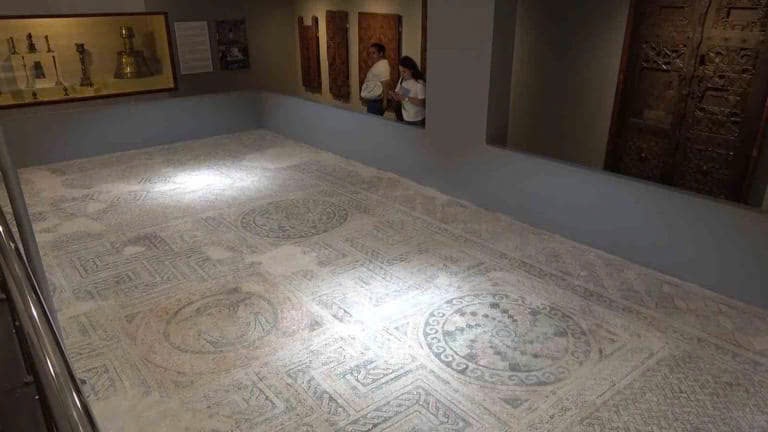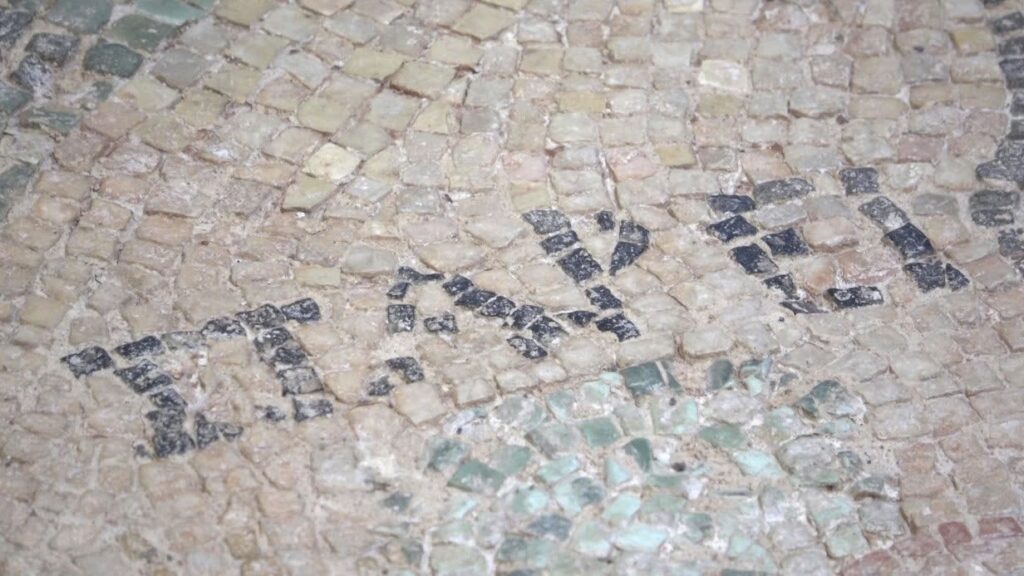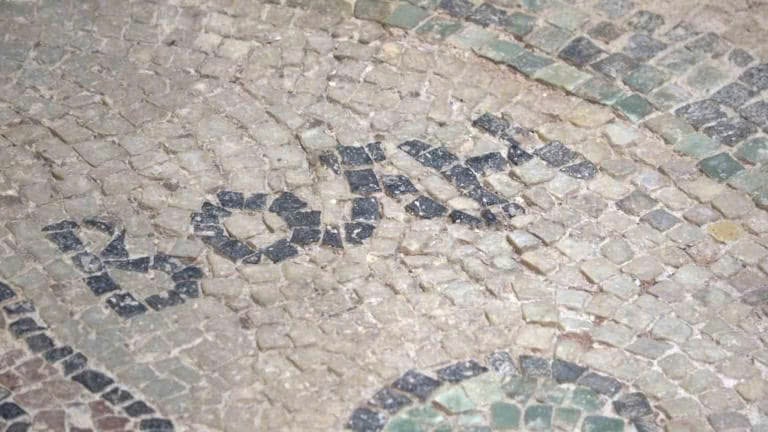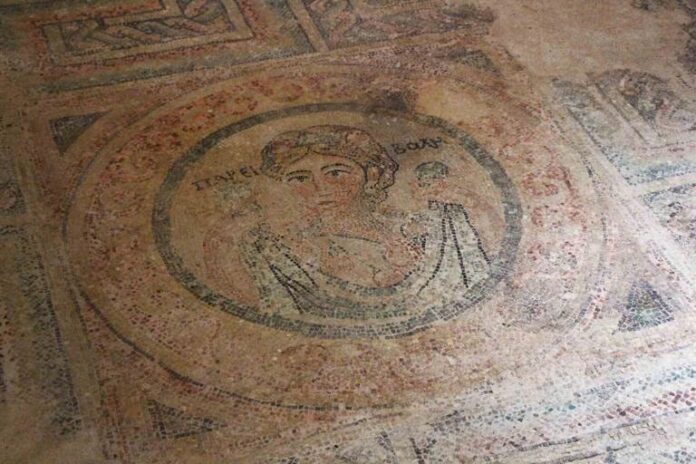1,700-Year-Old Mosaic Mystery Solved After More Than a Decade
Decoding the Medallion: A Symbol of Roman Military Might

In a groundbreaking discovery, archaeologists have finally unraveled the mystery behind a 1,700-year-old mosaic unearthed in Amasya, northern Turkey. The massive 80-meter floor mosaic, first discovered during a rescue excavation near a high school in 2013, has been revealed to be a unique representation of a Roman military unit.
The Centerpiece: Priapus and the Military Inscription

At the heart of the mosaic lies a central medallion featuring the Greek god Priapus, a fertility deity associated with male virility and the protection of livestock and crops. Surrounding this figure are Greek inscriptions that have now been deciphered as “ΠAPEM-BOΛH” (PAREM-BOLE), identifying the mosaic as belonging to the Parem-Bole military unit.
A First of Its Kind
Celal Özdemir, Director of the Amasya Museum, emphasized the significance of this find: “A mosaic belonging to a Roman military unit or battalion related to legions has never been found before in Anatolia. This makes our discovery truly unique.”
Amasya: A City Steeped in History
From Ancient Civilizations to Ottoman Training Ground

The discovery adds another layer to Amasya’s rich historical tapestry. With a history dating back to 4000 BC, the city has been home to numerous civilizations, including the Hittites, Phrygians, and Persians. It served as the capital of the Hellenistic Kingdom of Pontus and later flourished under Roman and Byzantine rule.
A UNESCO World Heritage Candidate
Today, Amasya continues to captivate with its blend of natural beauty and historical significance. The city’s “Mount Harşena and the Rock Tombs of Pontic Kings” are included in UNESCO’s World Heritage Tentative List, showcasing its enduring cultural importance.

As excavations continue in this ancient city, archaeologists anticipate uncovering more treasures that will further illuminate the complex history of Amasya and its role in shaping the civilizations of Anatolia.

